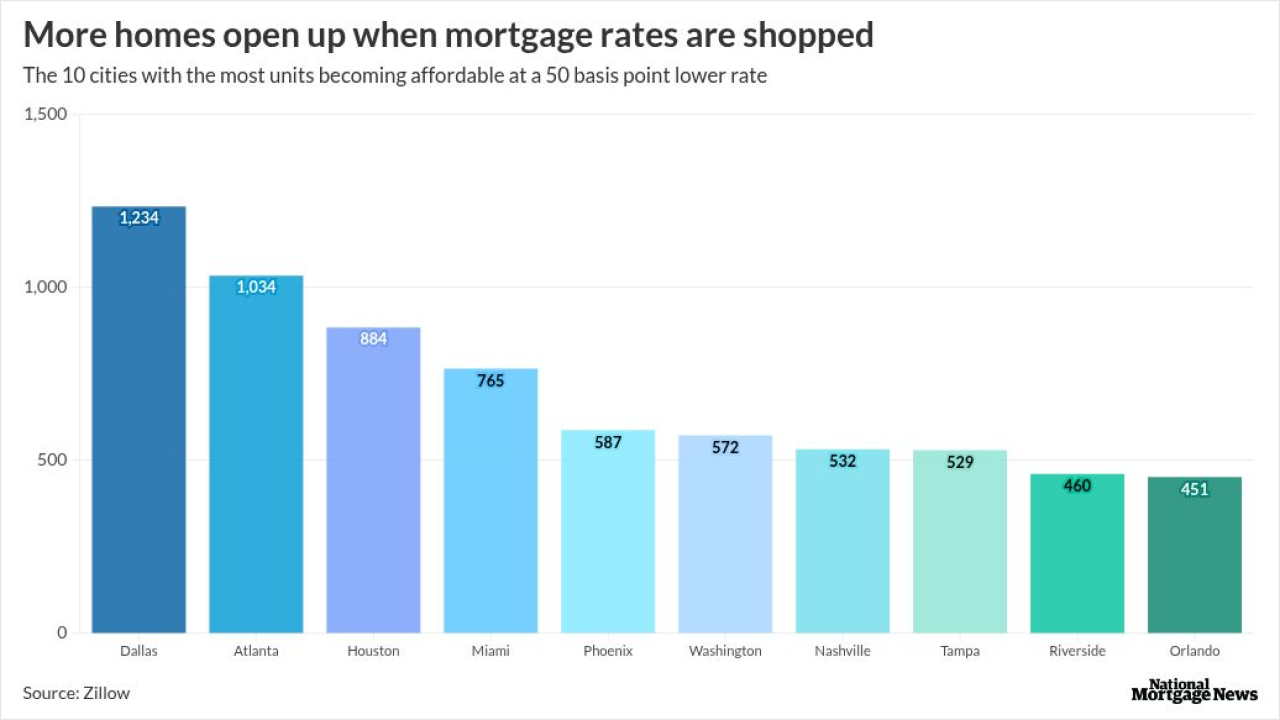
There's a technology renaissance afoot in the mortgage industry, as technology developers rapidly bring new capabilities to market that lenders and servicers finally appear eager to adopt. In 2019, tech will be tapped to battle for borrowers as lenders compete for market share. Professionals will use it to try and better align a highly fragmented industry, keep their costs down and replace repetitive roles with automation.
What's to come is a more integrated, intuitive process, with mergers and acquisitions in store for some, and job cuts for others. Here's a look at three ways new technologies are poised to create new growth opportunities for the mortgage industry.

Consumer central
"In 2019, my boldest prediction is you'll see a lot more of the hybrid closings, e-closings. The more the millennials buy homes, the more they will demand that mortgage companies move to their beat of the drum," said A.W. Pickel, President of Waterstone Mortgage.
At the heart of constructing a more digital process is taking a highly-fragmented industry and getting individual sectors on the same page.
"What really needs to happen in the next year is a substantially bigger investment in making all of the solutions integrated," said Garth Graham, senior partner at Stratmor. "It's great that there are all these developing products that are driving better customer satisfaction, but you've got to make them integrate from an end-to-end customer experience."
Getting segments of the industry better aligned will offer smoother transitions and ultimately a quicker loan process. While all the front-end "bells and whistles" jazz-up portals, they may not be what consumers need most — which is a quick, efficient process.
"I worry that in our efforts to promote the digital mortgage or the e-mortgage, if we're missing what the consumer really wants," said Pickel. "I worry sometimes that we that we focus so much on the digital mortgage as if it's the end all, be all, when in reality, it's closing on time," he said.

One-stop shops
"It's expensive to get into something like insurance if you're in real estate or into mortgages, and I think that's what has kept these businesses as being relatively separate, and maybe they partner, but that's about it. Well, along comes technology, and that sort of starts to insulate the business from some of the subject matter expertise that's required," said Steve Butler, founder and president of AI Foundry, a developer of artificial intelligence and back-office automation technology.
"When you think about a real estate company that has the customer name, that has all the information about the customer, what their desires are and so forth, but if they also can push a button if you will, and provide a mortgage for that customer, and provide insurance, and if technology enables that, similar to the way technology is enabling other business process automation, then I think it becomes much easier," he said.
Since mortgage companies will be forced to compete not only with themselves, but larger players leveraging their customer bases, the industry can expect to see growth in mergers and acquisitions activity in 2019. Companies will move to acquire new tech, while also expanding their footprint.
"Ultimately it's about automation, it's about having the best margins, offering the most disruptive pricing, all of that I think comes together, and I think acquisitions will follow along those lines," explained Butler.

Cost cutters
"For the mortgage companies that are out there today, I think they need to be well capitalized. There's a lot of talk by Ginnie Mae and others saying that there's too much counterparty risk," said Pickel. "What they mean is that company doesn't have enough cash to survive a downturn. I think if you're going to be in the mortgage business in the next year — number one — you need to be well-capitalized."
AI will help eliminate tedious and costly human labor as it learns to decipher and direct data while also shortening processing times and further reducing expenses. The tech will slash traditional methods of optical character recognition, which has been used in document processing.
OCR converts documents to readable text and highlights key words to identify a document type. The tool is about 60% to 70% accurate. In contrast, AI scans a document the way a human would, by dissecting its logos and geometry, and has accuracy levels of 90% or more.
But as tech advancements grow, so do data privacy concerns. One area where those concerns could magnify is in outsourcing. Customers want their information to be secure, so sending data to offshore outsourcers for processing, as has been common practice for the past two decades, isn't viewed favorably, according to Butler.
Domestic outsourcing, or "onshoring," may be seen as a safer option, but it's also much more costly, with tech being among the only methods for relief.
"It's a significant expense," said Butler. "It's at least double, and sometimes triple, the cost of an offshore, and how you deal with that is a big issue, and I think that the only way to deal with that is with technology and automation."





